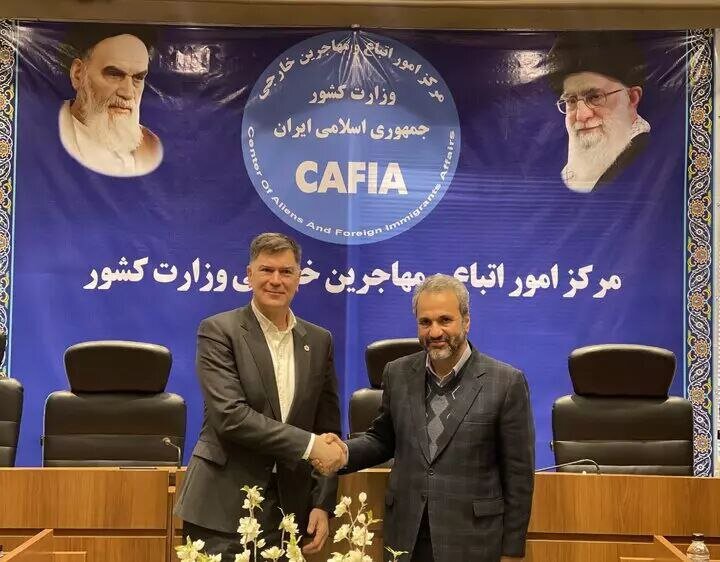ICRC ready to support refugee students in Iran

TEHRAN –Vincent Cassard, the representative of the International Committee of the Red Cross (ICRC) in Iran, has announced readiness to provide educational support for refugee children.
Referring to Iran’s generous hosting of foreign nationals, Cassard lauded the country’s remarkable services and efforts including family reunification and training on the prevention of risks from weapons’ contamination, IRNA reported.
The official made the remarks during a meeting with Nader Yar-Ahmadi, the head of the National Organization for Migration, on February 5.
He elaborated on the missions and humanitarian goals of the ICRC in the world, as well as their activities in Syria, Lebanon, and Iran over the last few decades particularly during the war between Iran and Iraq.
Yar-Ahmadi, for his turn, referred to the suspension of the U.S. financial aid, the surge in the number of Afghan refugees, and the resulting financial burden, expressing optimism to benefit from ICRC's capacities to address related problems.
The official also highlighted the large number of refugee pupils in the country and the significance of the education sector in developing and empowering nations, particularly Afghanistan, as well as reducing their problems. He went on to propose conducting joint educational activities, which was well-received by the representative of the ICRC.
Joint projects
In May 2024, the Iranian Red Crescent Society (IRCS) and the ICRC in Iran are conducting joint programs to address the challenges facing Afghan refugees and vulnerable Iranians residing in Golshahr district in Mashhad, northeastern Khorasan Razavi province.
“The initiative to provide primary health and rehabilitation services to Afghan immigrants and residents of Golshahr district is part of the joint program,” IRNA quoted Razieh Alishvandi, the IRCS director for international affairs, as saying.
Based on the memorandum of understanding (MOU) that was signed in the Iranian calendar year 1392 (2013 –2014), IRCS and ICRC agreed to support the rehabilitated refugees.
The program aims to provide basic health, mental health, educational, and social services. It also focuses on providing preventive and social assistance and reducing social harm to the target population, she added.
Physically disabled people will benefit from rehabilitation services and mobility aids including orthotics and prostheses, wheelchairs, walkers, and sticks, Alishvandi noted.
They will also enjoy relevant physical therapy services such as physiotherapy or occupational therapy based on the committee’s definitions.
The service recipients will be identified by the Society for Recovery and Support to be approved by the representative of the ICRC and then referred to the IRCS to receive these services.
The project is being implemented in four provinces on the eastern border of the country after the arrival of Afghan immigrants who left their countries because of the new governance in Afghanistan.
Funded by ICRC, the necessary preparations have been made to equip the IRCS rehabilitation centers in Mashhad which offer services to a large number of residents and Afghan nationals. These include a mine awareness project; an international humanitarian law project; and health services for vulnerable immigrants.
Iran may rethink refugee policies
In October 2024, Yar-Ahmadi said, “In case the international community refrains from taking responsibility and fairly sharing the burden of hosting refugees, the Islamic Republic of Iran will probably revise its immigration policies.”
The official made the remarks in a meeting held on the sidelines of the annual session with Flippo Grandi, the UN High Commissioner for Refugees.
The 75th Annual Session of the Executive Committee of the United Nations High Commissioner for Refugees (ExCom) was held from October 14 to 19 in Geneva, Switzerland.
Lauding the support and the efforts of the UNHCR in Iran, the Iranian official said the increase in foreign nationals’ population along with educational, economic, cultural-social, and health infrastructure pressure on one hand and the lack of consistency between the UNHCR budget and the needs and costs of refugees in the country on the other hand have caused numerous problems, IRNA quoted Yar-Ahmadi as saying.
The official emphasized less than one percent of the costs of refugees have been paid for; hosting more refugees is improbable, and they have to return to their home country.
MT/MG
Leave a Comment